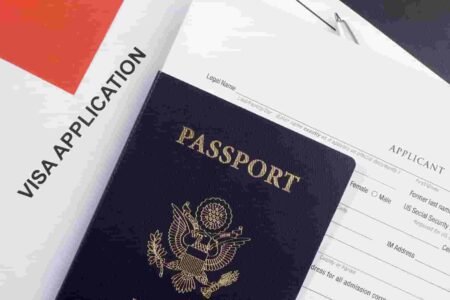The Singapore International Arbitration Centre (SIAC) has established itself as a premier arbitration institution, known worldwide for its high standards and experienced arbitrators. SIAC arbitrators are recognized for their skillful handling of complex disputes, delivering resolutions that meet the expectations of international businesses and legal professionals alike. Their expertise, efficiency, and neutrality are among the many reasons why SIAC is highly regarded and why parties from around the globe entrust it with intricate and sensitive cases.
In this article, we delve into the role of SIAC arbitrators in managing complex disputes and explore why their guidance is invaluable for parties seeking fair, efficient, and expertly guided arbitration.
1. The Role of SIAC Arbitrators: Ensuring Fairness and Expertise
SIAC arbitrators play an essential role in the arbitration process, acting as neutral decision-makers responsible for understanding the nuances of each case and rendering an impartial judgment. They are chosen not only for their legal acumen but also for their industry-specific expertise, cultural sensitivity, and commitment to upholding SIAC’s standards of integrity. The arbitrators’ role is to steer complex cases through a structured and fair process, balancing efficiency with thoroughness.
Key Functions of SIAC Arbitrators:
- Case Management: SIAC arbitrators are trained to manage cases effectively, ensuring that each phase of the arbitration runs smoothly. They set clear timelines, manage procedural hearings, and facilitate productive communication between the parties.
- Impartial Decision-Making: Arbitrators maintain strict neutrality, free from external influences or biases. This impartiality is crucial, especially in cases involving parties from different countries with varying legal expectations and cultural practices.
- Industry-Specific Insight: Many SIAC arbitrators are subject-matter experts, allowing them to handle cases that require specialized knowledge, such as disputes in construction, intellectual property, finance, and trade.
- Transparent Procedures: SIAC arbitrators ensure transparency at every stage, allowing all parties equal access to information and fair opportunity to present their arguments.
2. Why SIAC Arbitrators Excel at Handling Complex Disputes
SIAC arbitrators are chosen from a diverse pool of legal experts, each bringing decades of experience in international law and dispute resolution. Here are some of the qualities and practices that make them adept at handling complex cases:
- In-Depth Knowledge of Arbitration Law: SIAC arbitrators are well-versed in both domestic and international arbitration laws. They often bring experience from multiple legal systems, which is invaluable when handling cases that cross jurisdictional boundaries.
- Cultural Sensitivity: Given the international nature of SIAC cases, arbitrators must navigate cultural differences and respect the norms of all parties involved. This sensitivity ensures a respectful and effective arbitration process that all parties trust.
- Proficiency in Multilingual Communication: Many SIAC arbitrators are multilingual, which allows them to understand and communicate effectively with diverse parties. Language skills reduce the risk of misinterpretation and enhance the overall clarity of the proceedings.
- Thorough Analysis and Documentation: SIAC arbitrators prioritize accurate analysis and documentation. This careful approach to fact-finding and record-keeping ensures that each judgment is based on a well-documented, transparent process that can stand up to scrutiny.
3. Steps in the SIAC Arbitration Process: How Arbitrators Guide Disputes
The SIAC arbitration process follows a structured approach to streamline resolution and ensure clarity at every step. Here’s an outline of the typical SIAC process and how arbitrators guide parties through each phase:
- Preliminary Hearings: In the initial phase, the arbitrator holds hearings to understand the core issues, set a schedule, and outline the rules and procedures that will govern the case.
- Evidence Collection and Review: SIAC arbitrators supervise the collection of evidence, witness testimonies, and other relevant documents. They may conduct hearings where parties present arguments, cross-examine witnesses, and respond to questions from the arbitrator.
- Deliberation and Decision: After reviewing all evidence and testimonies, the arbitrator deliberates on the findings. They consider both the facts presented and the legal standards applicable to the case.
- Issuing the Award: The arbitrator’s final award is a comprehensive document that includes a summary of the case, the basis of the decision, and any remedies or financial awards. The award is enforceable in over 160 countries, thanks to Singapore’s adoption of the New York Convention.
4. SIAC Arbitrators’ Unique Approach to Efficient Arbitration
One of the hallmarks of SIAC arbitration is its focus on efficiency without sacrificing quality. SIAC arbitrators are known for using effective case management techniques, ensuring that each step of the process is handled promptly.
Efficient Case Management Techniques:
- Setting Realistic Timelines: SIAC arbitrators establish clear timelines for each stage of the case, keeping the arbitration process on track.
- Managing Procedural Hearings: Procedural hearings are used to address procedural matters quickly, allowing the arbitration to focus on substantive issues.
- Encouraging Early Settlement: In some cases, arbitrators may encourage settlement discussions, especially if a mutually agreeable outcome seems possible. By facilitating dialogue, arbitrators can help parties avoid prolonged and costly litigation.
5. The Importance of Impartiality and Confidentiality in SIAC Arbitration
The impartiality of SIAC arbitrators is critical in ensuring trust in the arbitration process. Each arbitrator is vetted thoroughly to ensure that they have no conflicts of interest that could influence the case outcome. Additionally, SIAC arbitrators are committed to upholding confidentiality, a feature that is often critical in business disputes involving sensitive information.
Confidentiality is a core tenet of SIAC arbitration, helping to create an environment where parties feel comfortable sharing proprietary information, trade secrets, or sensitive data without fear of public disclosure.
6. The Global Impact of SIAC Arbitrators and Singapore’s Arbitration-Friendly Environment
Singapore’s status as a global arbitration hub is supported by its legal framework, which fosters impartiality and enforceability. The city-state’s adoption of the UNCITRAL Model Law and its membership in the New York Convention are among the key reasons that SIAC awards are globally recognized and enforceable.
The country’s favorable conditions for arbitration—combined with SIAC’s efficient process and expert arbitrators—make Singapore an attractive destination for resolving cross-border disputes. The international reputation of SIAC arbitrators enhances Singapore’s appeal, as clients can trust that their cases will be handled with professionalism and integrity.
7. Case Studies: How SIAC Arbitrators Have Handled Complex Disputes
Case Study 1: Technology and Intellectual Property Dispute
In a dispute between a U.S.-based technology firm and an Asian company, SIAC arbitrators were called upon to resolve intellectual property issues that crossed multiple jurisdictions. The arbitrators’ background in technology law allowed them to quickly understand the complexities of the case, and they established a fair and enforceable ruling that both parties respected.
Case Study 2: Commercial Contract Dispute
A commercial dispute between a European company and a Middle Eastern supplier involved intricate contract terms and regional regulatory differences. The SIAC arbitrator’s expertise in contract law and experience in both jurisdictions allowed for an unbiased and informed decision that upheld the integrity of the contract while respecting each party’s interests.
8. How to Choose the Right SIAC Arbitrator for Your Case
Selecting the appropriate SIAC arbitrator can greatly influence the outcome of a dispute. Here are some factors to consider when choosing an SIAC arbitrator:
- Field of Expertise: Look for arbitrators with specific knowledge relevant to your case, especially if the dispute involves complex issues like intellectual property, finance, or international trade.
- Cultural Familiarity: Consider an arbitrator who understands the cultural backgrounds of the parties involved, as this can facilitate smoother communication and foster mutual understanding.
- Track Record of Efficiency: Select an arbitrator known for managing cases efficiently, especially if time and costs are a concern.
- Impartiality and Integrity: Ensure that the arbitrator has a reputation for fairness, integrity, and a commitment to impartiality.
Conclusion
SIAC arbitrators are at the heart of Singapore’s success as a global arbitration hub, embodying the qualities of impartiality, efficiency, and expertise. Their unique approach to managing complex disputes, combined with Singapore’s arbitration-friendly legal framework, positions SIAC as a preferred choice for resolving cross-border conflicts. By choosing SIAC arbitration, parties can trust that their disputes will be handled with the utmost professionalism, impartiality, and respect for confidentiality.
Whether you are navigating a complex commercial contract dispute, protecting intellectual property, or addressing intricate cross-border issues, SIAC arbitrators offer the expert guidance needed to achieve a fair and enforceable resolution. In a world where disputes are increasingly global, SIAC arbitrators stand out as trusted professionals who are committed to delivering justice through arbitration.







